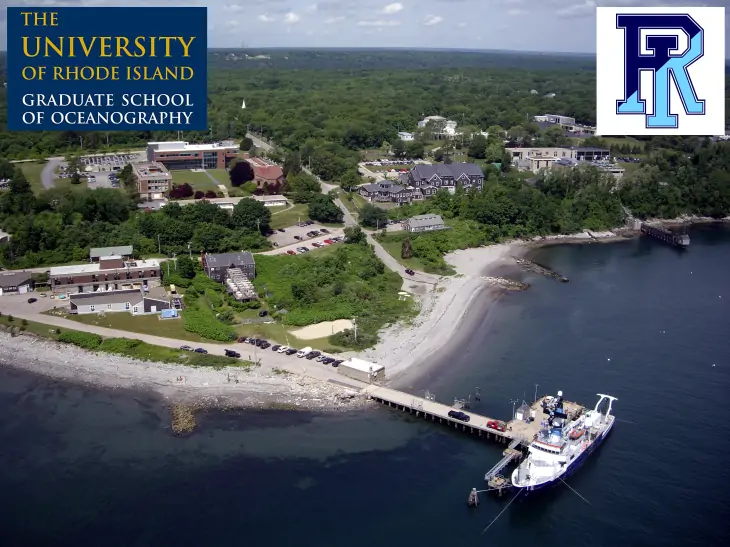
Joining The Lab
Thanks for your interest in joining the McMahon Ocean Ecogeochemistry Lab at the URI Graduate School of Oceanography! In our lab, we welcome diverse perspectives, interests, experiences, and backgrounds. We strive to make research and education enjoyable, accessible, and inclusive. I put together a brief “Guide to Choosing GSO” file here that talks a bit about GSO, URI, and living in Rhode Island to help you get a feel for what life at URI-GSO is like.
At the moment, our lab is close to capacity, so I am not actively seeking new members. However, we are always open to exploring graduate and postdoctoral options, especially those that bring diverse people, perspectives, and projects to our lab and the URI-GSO community. I have a very supportive, inclusive mentoring style that means I’m careful about the maximum size of the lab. I strive to always maintain the bandwidth needed to give everyone in lab the attention and support they need to grow and thrive.
Email me with your interests! Cold emailing prospective advisors can sometimes feel a bit daunting and I’m here to help demystify that process. The initial email is an opportunity to introduce yourself and briefly connect your research and education goals to my lab and our graduate program. I respond to everyone who emails me so if you don’t hear back from me in a week, try again. I may be traveling or have missed your email.
When inquiring about graduate/postdoc opportunities, please send me an email (kelton_mcmahon@uri.edu) with a brief introduction that includes the following 1) Your name, your university, intended graduate degree if possible (MO, MS, PhD, though happy to discuss the differences and find what’s best for you), and your desired start if known. 2) a brief description of why you’re interested in my lab related to your general research interests. This doesn’t need to be a fully defined project, but rather, this is a chance to illustrate how your interests align with our group. Part of my job is to help you refine and focus those general interests into tractable research projects. 3) A copy of your up-to-date CV (resume) that details education history, previous research and volunteering experience, publications/presentations, etc.
Graduate students in the McMahon Lab at URI-GSO typically apply to the URI-GSO Graduate Program through the Biological or Chemical Oceanography disciplines. Please contact me (kelton_mcmahon@uri.edu) before you apply (preferably in August/early September for the Jan 1 deadline). I think the advisor-advisee relationship is one of the most important aspects of a successful graduate experience. So I like to talk to all prospective students multiple times prior to applying to get to know each other, evaluate mentoring/learning styles, and answer questions. While we consider applications on an ongoing basis, we strongly encourage students to submit applications by January 1st for a Fall Semester start (typical start for most students) to be eligible for URI fellowships. Details about my mentoring style, what I look for in prospective students, and our degree programs can be found at the Graduate Students link above.
Postdoctoral Scholars
I welcome inquiries from PhD students and recent graduates interested in pursuing postdoctoral research in my lab. I highly value postdocs who bring diverse backgrounds, perspectives, skills, and experiences to lab. I think the postdoc position is a great time to expand skill sets, either by learning new techniques, new systems, or new applications. I really like working with people who bring unique, complementary skill sets that we don’t have as a group and are keen to learn expertise that we do have. I strongly encourage prospective postdocs to reach out to me well in advance (at least a year) as it can often take significant time to secure adequate funding. Interested individuals may email me (kelton_mcmahon@uri.edu) to discuss possible projects, mentoring/professional development plans, and funding sources. Postdocs in my lab have been funded through a mix of research grants and external fellowships. I am happy to work with highly motivated prospective postdocs to apply for fellowships, but to do so, we have to meet early in the application process to have enough time to develop ideas and work collaboratively on application materials. I typically like to start working with people in the summer of the year they plan to apply for fellowships (i.e., typically one year before you plan to start a postdoc). Some examples of postdoctoral fellowships include: NSF Postdoctoral Fellowship in Biology (due in Dec), NSF Polar Programs Postdoctoral Fellowship (Due in Feb), NSF Ocean Sciences Postdoctoral Fellowship (due in Nov), Ford Foundation Postdoctoral Fellowship (due in Dec), L’Oreal Women in Science Postdoctoral Fellowship (due in Jan), Life Sciences Research Foundation Fellowship (due in Oct), NOAA Climate and Global Change Postdoctoral Program (due in Jan).
Undergraduate Students
We often have paid positions for URI undergraduate students to participate in research in our lab. These positions can include: independent studies or summer research for course credit, paid part time lab assistance, and senior research projects. We welcome students of all backgrounds and experiences. If you are interested in one of these positions, please email me (kelton_mcmahon@uri.edu). URI also has several excellent Fellowship and Internship programs to explore, including: the Coastal and Environmental Fellowship Program, Science and Engineering Fellows Program, and the URI Summer Undergraduate Research Fellowship (SURF) Program.
Undergraduates outside of URI who are interested in research in our lab should contact me about applying for the URI-GSO NSF REU Summer Undergraduate Research Fellowship in Oceanography Program. The SURFO program is a 10-week, paid research experience designed for science, math and engineering students who will have just completed their junior year of undergraduate coursework (though students from ancillary disciplines or with fewer years of college coursework are welcome to apply). The program can include laboratory work, field work, data analysis, instrument development, numerical modeling, even a research cruise.